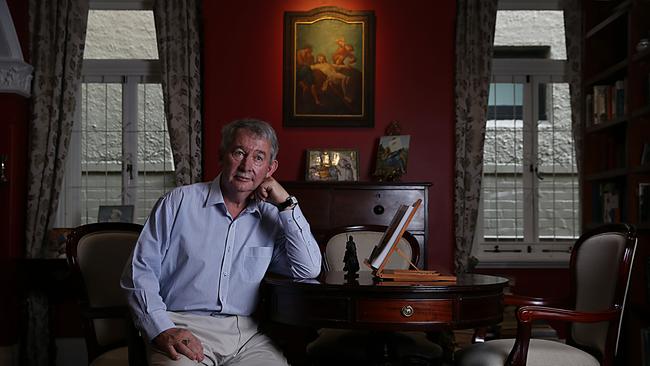New voice proposal by Uphold & Recognise to placate both sides
An alliance of prominent Australians is asking the Coalition to “anchor” the Indigenous voice in the constitution with a new amendment it considers to be politically achievable.

An alliance of prominent Australians is asking the Coalition to “anchor” the Indigenous voice in the constitution with a new amendment it considers to be politically achievable.
The word “voice” does not appear in the suggested constitutional change put forward by Uphold & Recognise, an organisation founded by Liberal MP Julian Leeser and lawyer Damien Freeman with the aim of upholding the constitution while “finding common ground” on constitutional recognition of Aboriginal and Torres Strait Islander people.
The Weekend Australian has been told Uphold & Recognise briefed Scott Morrison’s office on the suggested wording in the second half of last year.
The amendment to the constitution being pushed by Uphold & Recognise says: “The commonwealth shall make provision for Aboriginal and Torres Strait Islander peoples to be heard by the commonwealth regarding proposed laws and other matters with respect to Aboriginal and Torres Strait Islander affairs, and the parliament may make laws to give effect to this provision.”
Constitutional expert Greg Craven, one of three directors of Uphold & Recognise, says the proposed amendment would achieve the aspirations of the landmark Uluru Statement from the Heart — which calls for the establishment of a First Nations voice enshrined in the constitution — while still accepting parliamentary supremacy.
The organisation has argued for it in a formal submission on the cabinet-backed voice proposal. Uphold & Recognise adopted it from an essay written last year by constitutional expert Anne Twomey for The Conversation website.
It is much less specific than a four-point suggested amendment from Professor Twomey almost six years ago. In that suggested amendment from 2015, which Professor Twomey has described as her preference, both houses of parliament are compelled to table and consider the advice of an as yet unnamed Indigenous body.
The Morrison government has deferred a decision on whether or not the voice should be constitutionally enshrined until after its design is settled. It has also funded a two-stage design and consultation process to finalise what the voice will look like, as well as its roles.
While the government is committed to creating a voice to give Indigenous people more say in the decisions that affect them, Uphold & Recognise has concluded there is no hope it will move to explicitly enshrine it in the constitution. In 2019, when the Coalition planned a referendum on constitutional recognition of Indigneous people, Indigenous Australians Minister Ken Wyatt revealed this would be about symbolic recognition only.
“I want to be very clear; the question we put to the Australian people will not result in what some desire, and that is a enshrined voice to the parliament,” he said.
There will be no referendum on constitutional recognition before the next election, in part because the coronavirus pandemic caused delays to the government’s agenda.
Included in Uphold & Recognise’s formal submission on the interim voice report is a legal opinion from Professor Craven and Mr Freeman.
“We believe that this provides a new option for constitutional recognition of Indigenous peoples which addresses the aspirations of the Uluru Statement within the parameters set by the government by creating a new constitutional duty of imperfect obligation,” they write.
“The proposed First Nations voice could be established through legislation, but the new constitutional duty would enshrine the obligation in the constitution.”




To join the conversation, please log in. Don't have an account? Register
Join the conversation, you are commenting as Logout